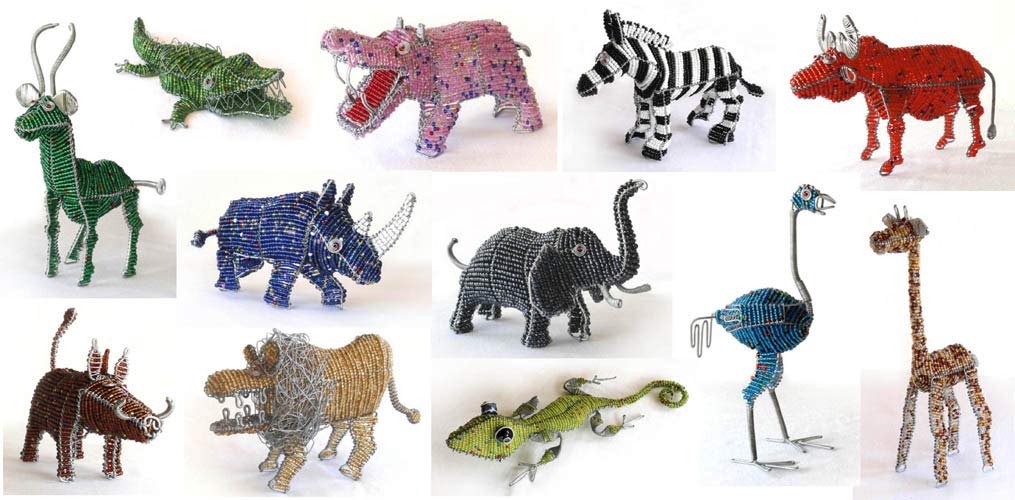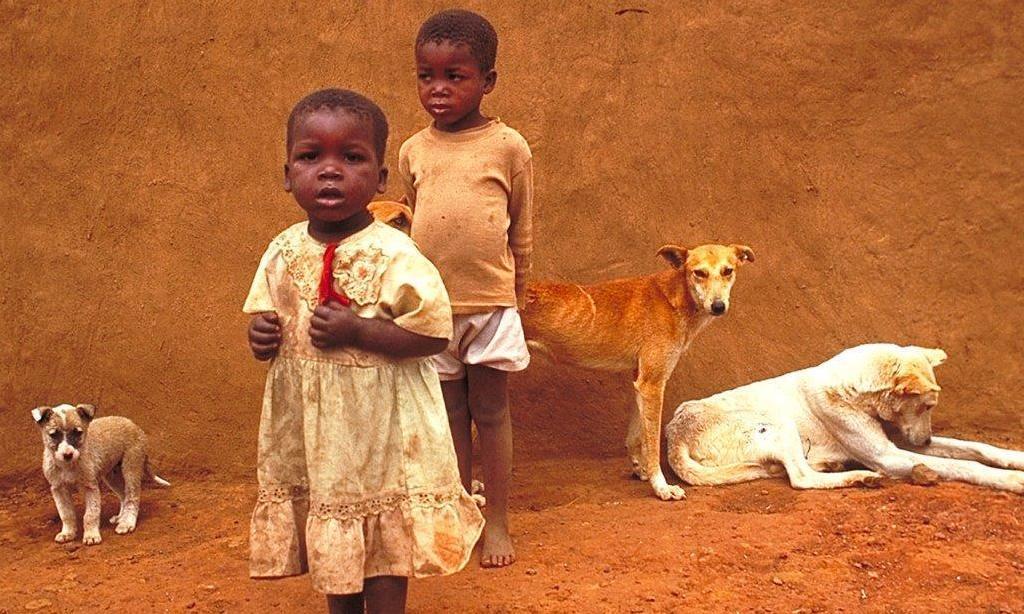The Original Dog of Africa; A Photoessay
My Travel Story
In just a few days I will be traveling to South Africa to bring the story of the Africanis dog to life in an extended photo essay. The Africanis is a very unique breed of dog found only in sub-equatorial Africa. They are a domestic dog and live a symbiotic existence with people but what makes them so unique is that they are a land race, meaning that they have evolved for thousands of years without any interference/direction from humans. The aboriginal Africanis is found only in the most remote traditional tribal regions of South Africa. I am fortunate to have Africanis expert Edith Gallant and a team of two South African sceintists as my guides. I am so thrilled to be able to tell the story of these rare, elegant, intellgent dogs and their people. The Africanis is truly one of the only remaining examples of a "natural dog". I think that is very exciting.
BACKSTORY:
Last summer I was awarded a grant to travel to South Africa to document a course that is focused on bringing artists and scientists together to inspire informed creative content and discourse about wildlife conservation. I spent three weeks in the African bush in the Province of Limpopo, near the border of Mozambique. With the help of our expert tracker and guide, we were fortunate to see leopards, lions, elephants, rhinos and even pangolin—in short, some of the rarest and most endangered creatures in the world—up-close and in their natural habitats. However, during my time in South Africa, the animal that I became most fascinated by was simply (amd not surprisingly) a dog. I came to learn about Canis Africanis over an evening discussion of the use of dogs on both sides of the ever-present poaching wars. Anti-poaching dogs are generally the same breeds that Americans use for police and detection work: Malinois, Beagles and Shepherds, while the native African dogs that live among rural South African tribes and often assist in subsistence hunting are, in my opinion, far more exotic than an elephant or giraffe.
MORE ABOUT THE AFRICANIS:
The ancient and fascinating AfriCanis dog is an aboriginal breed, a land race, meaning that they were not selectively bred by humans like most canine breeds. Rather, the AfriCanis developed as a result of natural selection with physical and mental adaptation to various African ecological niches. AfriCanis expert Johan Gallant has referred to the breed as being, “shaped by Africa for Africa”. These clever, lithe dogs are one of the rare, remaining aboriginal dog populations in the world.
In the 1990’s dog expert Johan Gallant and his wife Edith along with traditional animal healer Joseph Sithole began a decade-long study to determine the genetic truth about these ancient dogs. The trio roamed southern Africa observing, photographing, and testing the DNA of the dogs they came across in villages. They concluded that these animals “were not a mess of mongrels but members of coherent breed of dog, with a distinct behaviour and appearance”. Gallant wanted to “re-brand” the native dog of Africa, which had historically gotten little respect, so he began by giving the breed an official name. “AfriCanis" combines Africa (the continent) and the genus Canis (the Latin name for dog).
Conservation of this species is crucial as they are one of only a few remaining examples of a “natural dog” in existence. In rural tribal villages, the Africanis dogs live alongside the community: men, women and children with whom they often form deep bonds. Related to ancient site hounds, the Africanis is a keen hunter and often accompanies men on hunts. These striking, intelligent and uniquely adapted dogs provide a fascinating look into what dogs might have been had humans not dominated their breeding for centuries.
We have often chosen to promote fashionable or cosmetically appealing traits over breed health and intelligence, but the AfriCanis evolved naturally without interference and is uniquely and perfectly adapted to the needs of their specific environment. With intimate access to these dogs in several villages and assistance from Edith Gallant of the AfriCanis Society, I aim to share the story of this amazing, rare aboriginal breed with the world.
**All upper level rewards include unique handmade beadwork by local Zulu and Nkozo women. We will be purchasing directly from the women, not through tourist shops, thereby helping to channel financial support directly to them and their families.
ABOUT US:
PHOTOGRAPHER AND WRITER: TRAER SCOTT
Traer Scott is an award-winning photographer and best-selling author of ten book
including Shelter Dogs, Nocturne: Creatures of the Night and most recently City of Dogs and Radiant: Farm Animals Up Close and Personal. Specializing in animal photography, the human/animal bond and conservation-themed fine art photography, Scott’s work has been exhibited around the world and has appeared in National Geographic, Time, La Monde, Life Magazine, Der Stern, The New York Times LensBlog and dozens of other national and international publications. She has a BA in Mass Communication with a background in print and radio journalism. Scott was the recipient of the Rhode Island State Council for the Arts Photography Grant, a 2018 Gilchrist Foundation Microgrant, and the 2008 Helen Woodward Humane
PRODUCER/GUIDE: EDITH GALLANT
Edith Gallant is the wife and research partner of the late Johan Gallant and founder of the AfriCanis Society. She has generously offered to be my guide to the most remote traditional tribal lands where AfriCanis populations are most prevalent. Utilizing her extensive contacts dating back several decades, we will have deep access to villages where outsiders are usually not welcome.
*All photos c. Edith and Johan Gallant
Updates
3-
One Week Before I Leave!!!

In just one week I will be 30,000 feet up on my way to South Africa> i look forward to beginning the journey of telling the story about the Africanis dog and am grateful for your support! -
Animal Figurines Reward

These are some examples of the types of animal figurines that are included in the $50 reward. Awesome little creatures that help support local tribal communities!
More Travel Information
-
Campaign Ended
$ 1,185 USD
Total Donation Received-
62%
Funded -
$ 1,900 USD
Goal Amount -
0
Days Left
-
-
Cost Calculator
-
Airfare/ International Flights
$ 900
-
Accommodation
$ 600
-
Local Travel Expenses
$ 400
-
-
Donor Rewards
-
20 USD
I will send you a postcard from beautiful South Africa with my heartfelt thanks!
-
50 USD
Postcard plus a 5x7" limited edition print from my final photo portfolio and a Zulu beadwork animal figurine.
-
75 USD
Postcard, 5x7" print and a South Africa baseball cap!
-
100 USD
Postcard, 5x7" print and beaded bracelet made by a Zulu or Nkozo woman.
-
175 USD
Postcard , 5x7" print plus a handmade beaded necklace or other large piece of Zulu or Nkosa beadwork.
-
500 USD
Postcard, two pieces of beadwork, plus an 11x14" signed limited edition print from final portfolio.
-
-
Funders
-
Jen Young Funded $ 25 USD
May 25, 2019 -
Anonymous Funded $ 100 USD
May 09, 2019 -
Anonymous Funded $ 100 USD
May 08, 2019 -
Connie Kile Funded $ 40 USD
May 07, 2019 -
Kelley Beaudry-Seguin Funded $ 50 USD
May 04, 2019 -
Katenna Funded $ 50 USD
May 04, 2019 -
Anonymous Funded $ 25 USD
May 03, 2019 -
Shannon Johnstone Funded $ 50 USD
May 03, 2019 -
Sara Henderson Funded $ 50 USD
May 02, 2019 -
Marylou F Hecht Funded $ 100 USD
Apr 29, 2019 -
Anonymous Funded $ 30 USD
Apr 28, 2019 -
Mary Eidukevicius Funded $ 50 USD
Apr 28, 2019 -
David Parr Funded $ 175 USD
Apr 27, 2019 -
KRISTIN FLETCHER Funded $ 50 USD
Apr 26, 2019 -
Sara Henderson Funded $ 40 USD
Apr 24, 2019 -
Elaine Dickson Funded $ 150 USD
Apr 24, 2019 -
Stephen Coon Funded $ 100 USD
Apr 24, 2019
-



